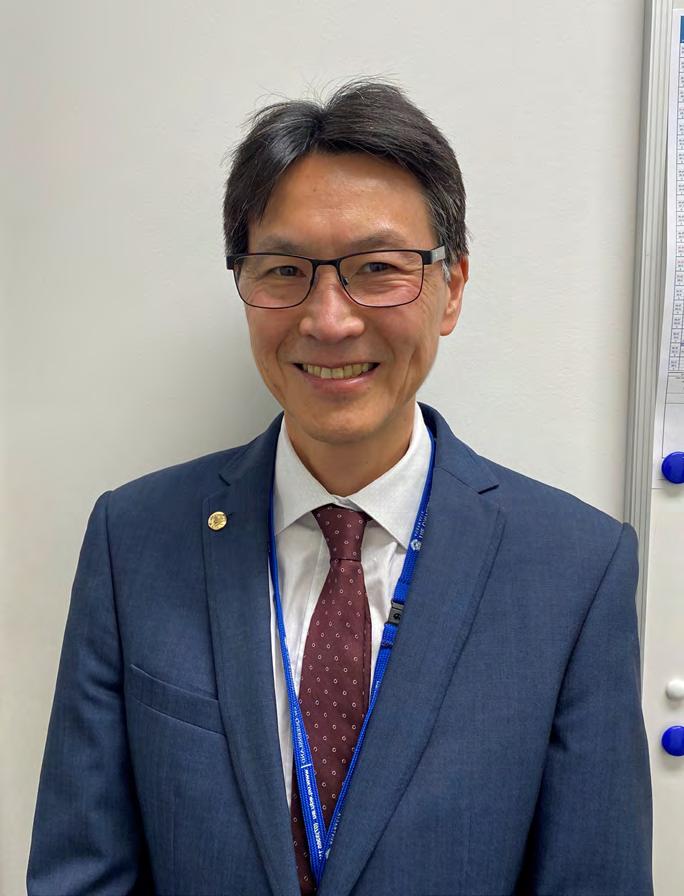
3 minute read
New chair for RACS Global Health
The Royal Australasian College of Surgeons (RACS) , an accredited non-governmental organisation (NGO), strives to ensure that safe surgical and anaesthetic care is accessible to everyone in the Asia-Pacific region. RACS, through its Global Health department, currently supports local healthcare systems in 13 Asia-Pacific countries, by providing specialist medical education, training and medical aid. This supports those health care systems to provide quality medical services for themselves into the future.
Professor Owen Ung is the new Chair of RACS Global Health. He joins the team and will guide it through some transitions, while keeping Fellows connected and engaged with meaningful international aid work. He plans for Global Health to hit the ground running next year as the pandemic eases.
Advertisement
Professor Ung is a breast and endocrine surgeon based in Brisbane. Among his many roles, he is Director of the Metro North Comprehensive Breast Cancer Institute, a visiting specialist surgeon for the Breast and Endocrine Surgery Unit at the Royal Brisbane and Women’s Hospital, and a Professor of Surgery at the University of Queensland.
Professor Ung has given back to his profession through many voluntary contributions to RACS. He was on the Court of Examiners for 10 years, and has been a member of RACS New South Wales and Chair of Queensland State committees. Professor Ung represents surgeons at a Federal level as a Councillor for the Australian Medical Association (AMA).
“For me, there’s much more to the surgical profession than earning a living,” he said. “It’s about what you do in terms of community engagement, academia, and contributions to the betterment of your profession and fellow human beings.”
“Global health is a bit left field for me,” Professor Ung continued. “But I’d like to learn more about it and make a contribution in that area, even if it’s not actually being on the ground.” Professor Ung was responsible for supporting Thai surgeons through the Weary Dunlop Boon Pong Exchange Fellowship, a collaboration between the Royal Australasian College of Surgeons and the Royal College of Surgeons of Thailand. Through this program, he helped surgeons gain specialist medical experience and grow valuable networks with international colleagues. He hopes to bring this experience to Global Health.
Professor Ung is determined that adjustments to how the department functions will be “positive changes with purpose”. It is important for him to streamline the programs and engage Fellows in rewarding global aid work, while achieving sector and Department of Foreign Affairs and Trade (DFAT) accreditation. “Change is not always easy and adaptation takes time. We are adapting and RACS will continue to deliver excellent global health programs.”
As someone who has volunteered much of his own time for the betterment of health, Professor Ung knows only too well how vital participation from dedicated Fellows is for the success of Global Health programs. “Regardless of what regulations are in place, if the Fellowship becomes disconnected because our Fellows don’t have an adequate vision, you don’t have a program,” Professor Ung said. “We have to keep the vision, maintain flexibility and ensure our Fellows stay engaged in the process, because they do fantastic, important work and we don’t want to lose that vital enthusiasm.”
Earlier in his career, Professor Ung had a brief opportunity to make a difference at ground level to the health of a community in Tanzania. He feels that short experience was enough to ignite a desire to share his medical knowledge with global communities less well resourced than ours. “If every surgeon had even a small experience working in a developing environment, I think it would open their eyes to the plight of vulnerable communities, and what Australia and New Zealand can do as privileged countries.”
“Global health is an important part of what RACS does,” says Professor Ung. “It should be about opening up and bringing together that wonderful fraternity of surgeons, healers and healthcare providers.”
Professor Ung is excited about working with his team to steer global health programs back into vulnerable communities as the COVID-19 pandemic subsides. “There’ll be many productive and meaningful roles RACS can fulfill at a time of great need. There’s no better time to jump on board and unite with other committed health professionals to make a difference to the health of people everywhere, particularly our regional neighbours.”









